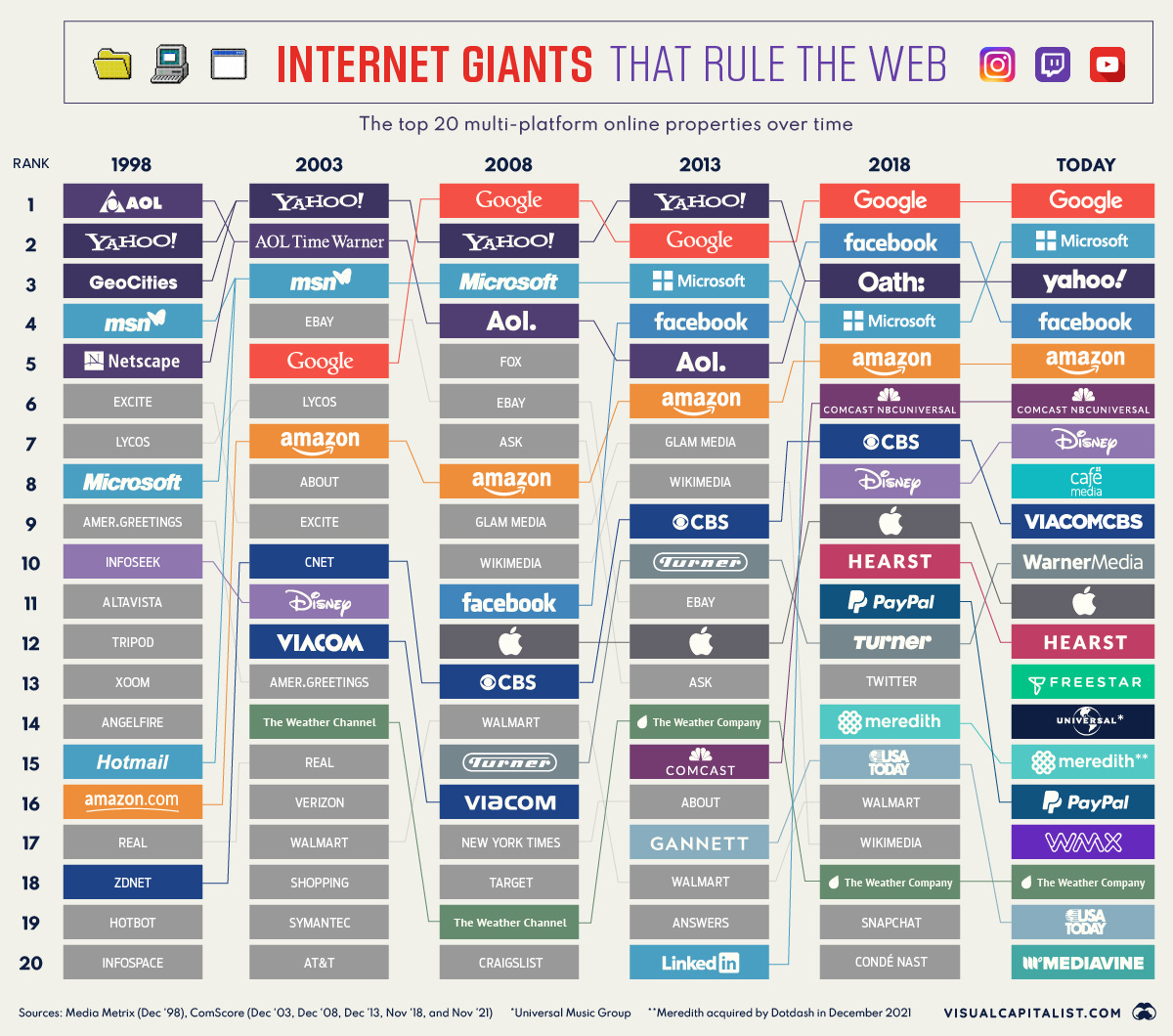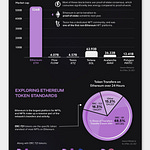Tech Terms
Elastic Computing — The capability of cloud services to decrease or expand computer storage, memory, and processing to handle fluctuating demand.
Don’t be Fooled by Russia’s Ransomware Roundup
What’s New: The Russian government has arrested several members of the REvil ransomware syndicate, the group responsible for last year’s attacks against meat supplier JBS and customers of the IT company Kaseya.
Why This Matters: REvil has been under pressure since its high-profile attacks last year and President Biden has called on Russia to crack down on ransomware groups operating within its borders.
Key Points:
Members of the Federal Security Service (FSB) raided and arrested 14 REvil members, seizing computers, luxury vehicles, and more than $5.5 million in cryptocurrency and rubles, according to Wired.
“The organized criminal community ceased to exist, the information infrastructure used for criminal purposes was neutralized,” a translated version of the FSB’s statement says.
The FSB went on to say that the arrests were in direct response to Biden’s request for action.
What I’m Thinking:
There’s no rest for the wicked. For a long time, ransomware groups were assured they could operate with near impunity inside of Russia so long as they didn’t cause the country too much trouble internationally and they complied with government requests for “technical assistance.” But that deal was always transactional and hackers inside of Putin’s paradise are now getting the message that they might be arrested or otherwise constrained if the country’s political interests require such actions. Don’t feel too bad for the REvil jerks, they’re not going to be deported and they’ll likely continue to be employed and handsomely rewarded by the FSB.
The is the Devil rebuking sin. While Putin’s REvil roundup would appear to serve U.S. interests, it falls within the broader context of growing tensions along the Ukrainian border. Negotiations between the United States and Russia have failed to turn down the heat and Moscow is poised to cross the border any day. Even more so after the President’s disastrous press conference this week where he indicated NATO is divided and that America’s promise of crippling sanctions might not materialize if Putin only conducts a “minor incursion.” The arrests were almost certainly a political ploy aimed at signaling to the United States that Russia has the ability to take decisive action against ransomware groups if it wants or it can let them off the chain — and both possibilities should be considered as the United States charts its path on Ukraine.
Alibaba’s Turn in the Dock
What’s New: The Biden administration is reviewing Alibaba’s U.S. cloud business over concerns that it might pose a threat to American national security, according to Reuters.
Why This Matters: The company is an e-commerce giant, bigger than Amazon, with extensive cloud service offerings that, until recently, appeared poised to expand rapidly in the United States.
Key Points:
Alibaba Group Holding Limited is a China-based company offering a suite of businesses, including core commerce, cloud computing, and digital media and entertainment — generating more than $100 billion in revenue last year.
Alibaba Cloud is China’s largest cloud provider and offers everything from database, storage, and network virtualization to elastic computing, data analytics, machine learning, and IoT services. But its U.S. business is relatively small at an estimated $50 million.
The U.S. is reportedly concerned about how Alibaba stores, secures, and manages the data of its American clients and whether the Chinese government can access this information.
The Commerce Department’s Office of Intelligence and Security (OIS) is reportedly leading the investigation; but, the agency declined to comment on the story.
The OIS was created by the Trump administration as it rolled out new authorities for the Commerce Department to review and reject transactions between U.S. and foreign telecom and technology companies.
Separate, but relatedly, France’s National Agency for the Security of Information Systems (ANSSI) is pushing back on a plan to have Alibaba as a provider of cloud services for the 2024 Olympic Games in Paris over data security concerns.
What I’m Thinking:
These companies don’t have to be evil, just compliant. I’ve always liked Alibaba. Its founder, Jack Ma, is a charismatic and seemingly nice guy. He’s not really a tech guru but he built a massive tech company. He also appeared to have some significant differences with the Chinese Communist Party (CCP). And that’s when things went sideways for him and his company. Last year, just before Alibaba’s ANT financial company was about to have the largest public offering in history, Ma publicly criticized the CCP and the government responded by stopping the listing, placing Ma in a suspected house arrest, and hitting Alibaba (and other Chinese tech companies) with mounting regulations. You see, in China, the communist government is supreme and irresistible. If you want to do business as a Chinese company you have to play ball with the CCP — and this is the root of U.S. concerns about Alibaba’s cloud services. We know Chinese law gives the government access to all data and we know that companies who don’t comply with the government don’t stay in business very long. The OIS investigation should be completed with rigor but we already know what it should conclude: so long as the CCP is running China, Chinese technology providers cannot be trusted to operate safely or securely in the United States.
Distrust is our Default
What’s New: The 2022 Edelman Trust Barometer is out and its findings are not good.
Why This Matters: This annual report tracks and analyzes how trust is shaping the world economically, socially, and politically. While not a pure “tech” issue, I often find this report helpful in understanding many of the social dynamics shaping tech and national security.
Key Points:
The Trust Barometer report is an annual survey conducted in 28 countries and engaging more than 36K respondents.
This is the 22nd year of the survey and this year’s report is titled, “The Cycle of Distrust.” Here’s its bottom line:
“After a year of unprecedented disaster and turbulence—the Covid-19 pandemic and economic crisis, the global outcry over systemic racism and political instability—the 2022 Edelman Trust Barometer reveals an epidemic of misinformation and widespread mistrust of societal institutions and leaders around the world. Adding to this is a failing trust ecosystem unable to confront the rampant infodemic, leaving the four institutions—business, government, NGOs and media—in an environment of information bankruptcy and a mandate to rebuild trust and chart a new path forward.”
Below is a quick summary of the report’s top 10 findings (click for larger view).
What I’m Thinking:
Our fundamental problem is pre-political. I’m a Christian. As a Christian, I root my understanding of truth, ultimately, in the person and character of an eternal, unchanging, and good God as revealed in the Bible. His unchanging nature, specifically, provides a steady point of reference for my understanding of the truth because all moral judgements are relative to Him. This, in my view, is the most compelling explanation of the world theologically, intellectually, and experientially. While many disagree with this view, this has been the predominant worldview in most of the West — and certainly in the United States — for centuries. But this understanding of truth is eroding rapidly, even among my co-religionists. According to one study, 58% of surveyed Americans believe “moral truth is up to the individual to decide,” and 46% of Evangelicals1 “reject absolute moral truth.” Why do I bring this up? Because a society that rejects the idea of truth cannot trust, and a society that cannot trust, cannot long survive as a democracy.
Our nation is a beautiful house of cards. American society is held up by institutions which are themselves braced by their legitimacy in the public’s mind. Remove legitimacy and the whole thing comes crashing down. Take our much-discussed electoral system as an example. For nearly two and half centuries, we have been able to peaceably transition political power because our citizens believed that electoral outcomes were determined by the will of the people and were, therefore, legitimate. Both political parties, however, are now systemically attacking this notion of legitimacy with the former president arguing his election loss was due to large-scale voter fraud and the current president saying rampant voter suppression is imposing a new reign of Bull Connor. Both assertions are categorically and demonstrably false; and yet, they are widely held. Unsurprisingly, this is leading to a hemorrhaging of legitimacy, with more than one-third of Americans saying they do not have confidence in the fairness of our last presidential election. If distrust of our elections continues to metastasize, it will eventually kill the legitimacy — and therefore the effectiveness — our entire political system.
All of this has implications for tech and national security. Tech’s current fascination with virtual, augmented, and synthetic worlds will further loosen humanity’s grip on truth by making the real and the made up indistinguishable. Those without a metaphysical anchor are likely to be tossed about in a restless sea of bits and bytes. Many will simply let go of truth and allow the currents to sweep them away into a fathomless ocean of entertainment, ease, and moral relativity. These trends will further dwindle the number of people with the moral and intellectual capacity to navigate foreign policy and national security challenges. After all, how do you argue against China’s genocide against the Uyghurs if you ultimately believe the CCP is just a “strict parent?”2 Or, how can we possibly marshal the nation’s political will to fight and die for our cause, if our own people don’t trust the government that is calling them to service?
All is not lost. While I suspect we will pay a higher cost than is required, I also expect that we will, over time, change many of these trends. Michelle Dean has said, “Crisis forces commonality of purpose on one another.” I think this is true and, as our current confusion leads to a growing sense of crisis, I trust that we will again form a commonality of purpose and return to our senses. We have done it before and, by God’s grace, we can do it again.
Let’s Get Visual
Nerd Humor
Quick Clicks
Israel says it is responsible for half of global cyber defense investment
North Korean hackers stole almost $400 million in crypto last year
Astrophysicists release the biggest map of the universe ever created
That’s it for this Friday Brief. Thanks for reading, and if you think someone else would like this newsletter, please share it with your friends and followers. Have a great weekend!
Defined as believing the Bible to be the true, reliable word of God.















